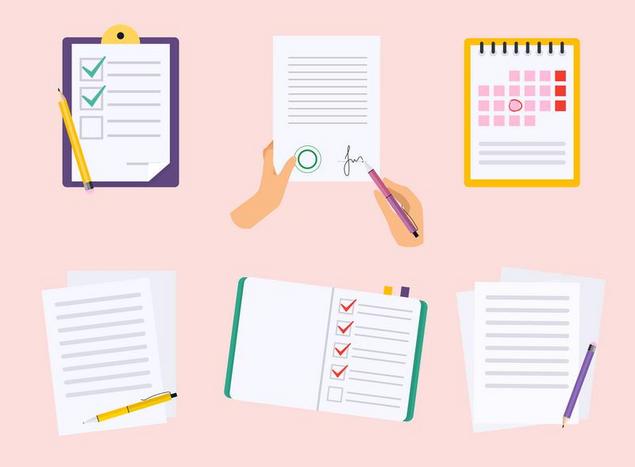Early decision deadlines are coming up in less than a month! Not that you need a reminder- I know I’m already stressed enough as it is.
Because of the approaching deadline, I’m here to remind you to request your recommendation letters, if you haven’t already done so. This part of your application is so important, yet it can be a difficult process for some- especially if you can’t identify someone that you have a close relationship with. Don’t worry! This guide will walk you through everything.
Now ironically, the subject of recommendation letters is something I actually had to research a great deal myself to get more information for my own college applications- so don’t feel bad if you’re completely stuck.
• If you are a freshman, sophomore, or junior:
If you are not yet a senior, congrats! You still have time on your side. The best advice I have is to build good relationships with your teachers. There really is no secret hack other than being a good person, both in and out of the classroom. Putting in effort in how you act every day is the only way you will build a positive connection with your teachers and receive quality letters later on.
• If you are a senior and have no idea which teacher to ask?
I can personally relate to this dilemma. Even though I consider myself to be a hard-working and respectful student, there wasn’t really a teacher that immediately popped into my head to write me a letter of recommendation; this led me to go on a deep exploration of every class that I took in high school.
What is a recommendation letter?
A letter of recommendation is simply another piece of information that college admissions officers utilize to gain a better understanding of who you are. It is written by someone who can recommend or vouch for your admission into the school you are applying for. More selective schools require at least one from a counselor or teacher of your choice. Usually, the amount of recommendation letters you can submit to schools is between 2-4, with some that might even allow up to 6. The required letters are typically from a guidance counselor and a teacher in a core academic subject (English, math, social studies, science…). Some colleges even give you the option to submit additional letters of recommendation from someone outside of the academic setting. It is key to keep in mind that the rule “quality over quantity” is definitely applicable when deciding how many to submit. If you don’t think someone can strengthen your application with an additional letter, don’t ask. In this case, what is not there is more beneficial than a mediocre extra element.- Think about all of the classes that you took over the past 3 years that interested you or ones where you had to put more effort into understanding the material. Chances are, your extra energy in the material was noticed by the teacher of that class, and they therefore can be a possible spokesperson to your enthusiasm and work ethic. Write a list of those teachers.
- From that list, analyze who could most strongly attest to your qualities as a student and portray a positive perspective of who you are.
- Submit a request for them to write you the letter. It may vary from school to school, but before anything else, it is in your best interest to email your recommender personally beforehand with your request. This goes without saying, but make sure to be extra polite and respectful when asking! Tell them why you have chosen them to write your recommendation letter to show your sincerity. Also, be sure to ask your teachers well in advance to ensure a quality letter. The ideal minimum is 2 weeks, but I think the most courteous time frame would be a month in advance just to be sure they have plenty of time (You would hate it if your English teacher assigned you an essay due the next day right?).
- Provide a copy of an updated resume to your recommender, complete with your activity involvement in school and out of school, any awards or honors you may have received, and leadership positions you might have. It may also be beneficial to let them know what majors you are considering and what colleges you are applying for so their letter is as detailed and personalized as it can be. In this situation, more is actually better.
- Send a thank-you note afterward expressing your appreciation goes a long way. Recognize that your recommender took time out of their busy schedule to do you a favor!
